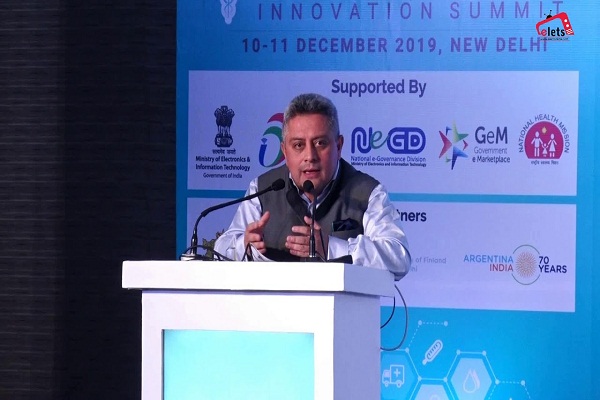
Access of quality and cheaper medicines is pivotal segment of whole healthcare delivery paradigm. Its significance increases vis a vis ongoing Covid-19 pandemic. Hector Cueva Jacome, Ambassador, Embassy of Ecuador in India, enumerates all aspects of cheaper medical costs, challenge on front of supply chain, and how mutually beneficial international collaborations could do away some of the existing challenges.
Cheaper medical costs in the “post COVID-19” era is what some Latin American countries like Ecuador, Costa Rica, Brazil or Peru are looking for, gaining better access to the generic market in India, one of the world’s largest producers, according to their diplomatic representatives in a virtual meeting held Saturday.

“What is sought after is the democratization of medicines in Latin America where many people do not have access to medicines due to their high cost,” said the Ambassador of Ecuador to India Héctor Cueva in the virtual meeting organized by the Federation of Indian Chamber of Commerce and Industry (FICCI).
To alleviate this situation, Latin American countries such as Ecuador, which, Cueva predicted, will be economically very battered from the coronavirus pandemic, need to “improve the purchasing processes” of medicines in India through government agreements.
As well as a “legal framework that allows a clear provision” of generic medicines which are already approved by countries with high quality standards such as the United States or European countries, he added.

Also read: NPPA fix prices of 40 formulation including popular diabetes drugs
The Ecuadorian ambassador indicated that generic drugs “can cost up to ten times more” in Latin America than in India, so he called for negotiating government agreements that allow them direct access to the Indian generic market.
Although he admitted that these negotiations do not yet exist, he believed that events such as that on Saturday will contribute to opening the path that other Latin American countries such as Costa Rica has already achieved.
The Central American country expects to close in the coming months, according to its Ambassador in New Delhi Claudio Ansorena, an agreement to buy (generic medicines) through government-to- government agreement without going through regional intermediaries, which he expects would save up to 50% of the medical costs of the Costa Rican sanitary system.
IMPROVE SUPPLY CHAINS
Another challenge they faced by the Latin American countries is to improve supply chains to avoid interruptions, as pointed out during the virtual event by the Brazilian Consul General in Hyderabad (South India) Sangeeta Reddy.
“I think the need to diversify supply chains for geopolitical reasons is very important. It is important not to have any dependencies,” she said.
The same was also emphasized by the Swiss Consul General in Bangalore (South India) Sebastian Hug, who also highlighted that in the post-COVID-19 era business unions or collaborations from different countries should be promoted to accelerate the development of the drugs.
The same coincided with his US counterpart, Joel Reifman, who added the rise of “telemedicine” that is already occurring as a result of the pandemic.
His US counterpart Joel Reifman added that the rise of telemedicine is already occurring as a result of the pandemic.
He further said that the coronavirus crisis has also revealed the need for faster organization of resources for prevention tests and vaccines and also for development of treatments.
In both fields, he said, India and the United States can collaborate. In this regard, he acknowledged that the United States is the largest dealer of medical devices in India, which supplies between 30 and 70 percent of generic drugs for the United States market.
Be a part of Elets Collaborative Initiatives. Join Us for Upcoming Events and explore business opportunities. Like us on Facebook , connect with us on LinkedIn and follow us on Twitter , Instagram.












